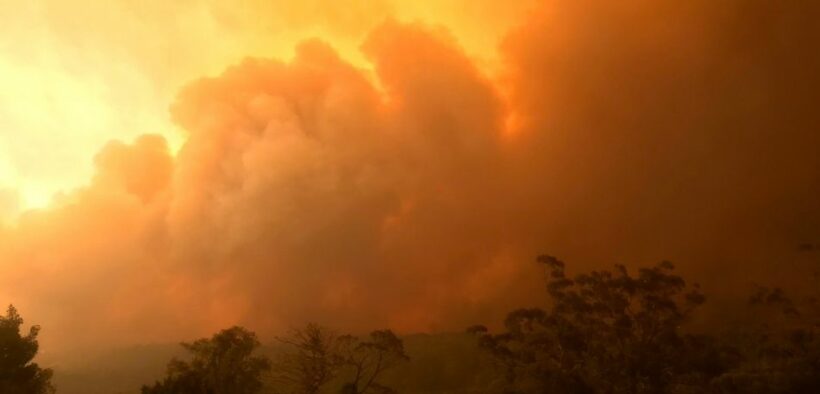In recent weeks, with funding being awarded through various FRRR programs, we have started to see concepts lift from the page and move into activated ideas. It also comes at a time when intersecting international conversations of climate urgency relating to COP 26 and the IPCC Report feature heavily in our daily media news feeds. So, it is timely to pause, and reflect on the tapestry of drought preparedness and resilience-building activity being undertaken across Australia, and to share some observations.
While the future climate challenges are as diverse as the landscapes where they are located; the people and communities of remote, rural and regional Australia are actively engaging in local solutions, decision-making and networking as a means of gaining and sharing the skills and knowledge needed to prepare their community and region for an increasingly drying climate, and sometimes challenge long-held attitudes.
On the national stage, the Rural and Regional Affairs and Transport References Senate Committee recently published its finding into its enquiry on the Federal Government’s response to the drought, and the adequacy and appropriateness of policies and measures to support farmers, regional communities and the Australian economy. In addition, the Australian Government’s Future Drought Fund initiatives are starting to take flight across multiple streams of investment that aim to build an economic, environmental, and socially resilient nation capable of enduring the impact of climate change. At FRRR, part of our challenge is synthesising the international, national, and state contexts with a hyper-local application of understanding and ideas to bring value to local people and places, as we work alongside them to imagine a vibrant future.
It’s our belief that remote, rural, and regional communities have the knowledge to best respond to the impacts of drought, climate change and other natural disasters. So, it has been incredibly heartening to see the diversity of response from communities in building their local networks, capacity, skills, and knowledge to respond to future drought and disaster events.
The first-round of recipients of the Australian Government Future Drought Fund’s Networks to Build Drought Resilience program have elicited a range of interesting patterns across the continent. Among them, and reflective of the increasing part that women are playing in key decision-making roles in rural and regional communities, concepts to build drought resilience locally-devised by women have emerged as a strong theme across multiple states.
A case in point. Although the mean rainfall has been relatively stable across the Eyre Peninsula in the last 30 years, the average days over 38 degrees have increased, and rainfall has decreased in autumn and in the late winter and early spring months, compared to the preceding 30 year period. Against this backdrop, Women Together Learning (WoTL), from Rudall in South Australia, are actively working to building their ambassador network to support women in agriculture through five workshops focusing on future drought, climate projections and the impact on agricultural practices and rural communities. The project involves building the capacity of the WoTL Ambassadors to participate in planning, professional development, and networking.
The project will bring women together, who ordinarily may connect, to form an ongoing future network to build skills, knowledge, and personal connections to be better informed about challenges that the changing climatic patterns presents. With a mean total of 300mm rain per year, planning ahead, and collective problem solving through strong networks will be critical to the region’s success.
On the other side of the country, in a completely different agricultural landscape and climate impact context, is the Northern Rivers Community Gateway Inc who are leading the Women on The Land – Get Ready Empower Yourself Preparedness Workshop Series in Casino, in New South Wales.
This project will deliver five workshops to improve the confidence and reduce social isolation of rural and regional women, while also providing planning and coping tools for the participants to share with their broader networks. Focusing on decision making, preparedness and land management, the workshops will provide a forum to build positive mental health of rural and regional women, while also providing access to service providers and the opportunity to build networks for ongoing cohesion and support.
In another example, the Liebe Group, an active grass-roots grower group from the Dalwallinu region of Western Australia, is also playing an active role in supporting women in drought resilience through their Women In Ag Networking and Diversification (WAND) Program:
Strengthening Social Connection and Farm Business Resilience. Importantly, this project will host onsite field visits and an agricultural show day to provide participants with future planning knowledge for below-average seasons and increased business acumen to adapt to the negative effects of drought. Through the project, the local women in agriculture involved in the projects will build capacity and resilience, as well as regional networks to respond to the impacts of drought, both socially and on their farm businesses.
The strength of these projects lies in the hyper-local but interconnected structure of these projects, as affirmed by the recent research commissioned by FRRR that indicates:
‘Resilience is not something that individuals or communities can achieve on their own. It is achieved through the combined and intersecting structures, processes, formal and informal networks and supports in communities working together. What we see as individual or community resilience is part of and supported by a collective effort by agencies, organisations, community groups, business and community members.’
We look forward to continuing to support groups like these, as they identify the most appropriate responses to these ongoing challenges, and equally take advantage of the opportunities that will no doubt emerge, as they strive for a vibrant and sustainable communities.
Nina is passionate about advocating for the people that call regional Australia home and making their communities great places to live. Raised in the Mallee scrub of western South Australia, her skills in strategic thinking, project management, governance, communication, and community engagement position her well to lead the Disaster Resilience & Recovery team at FRRR.

































































































































































